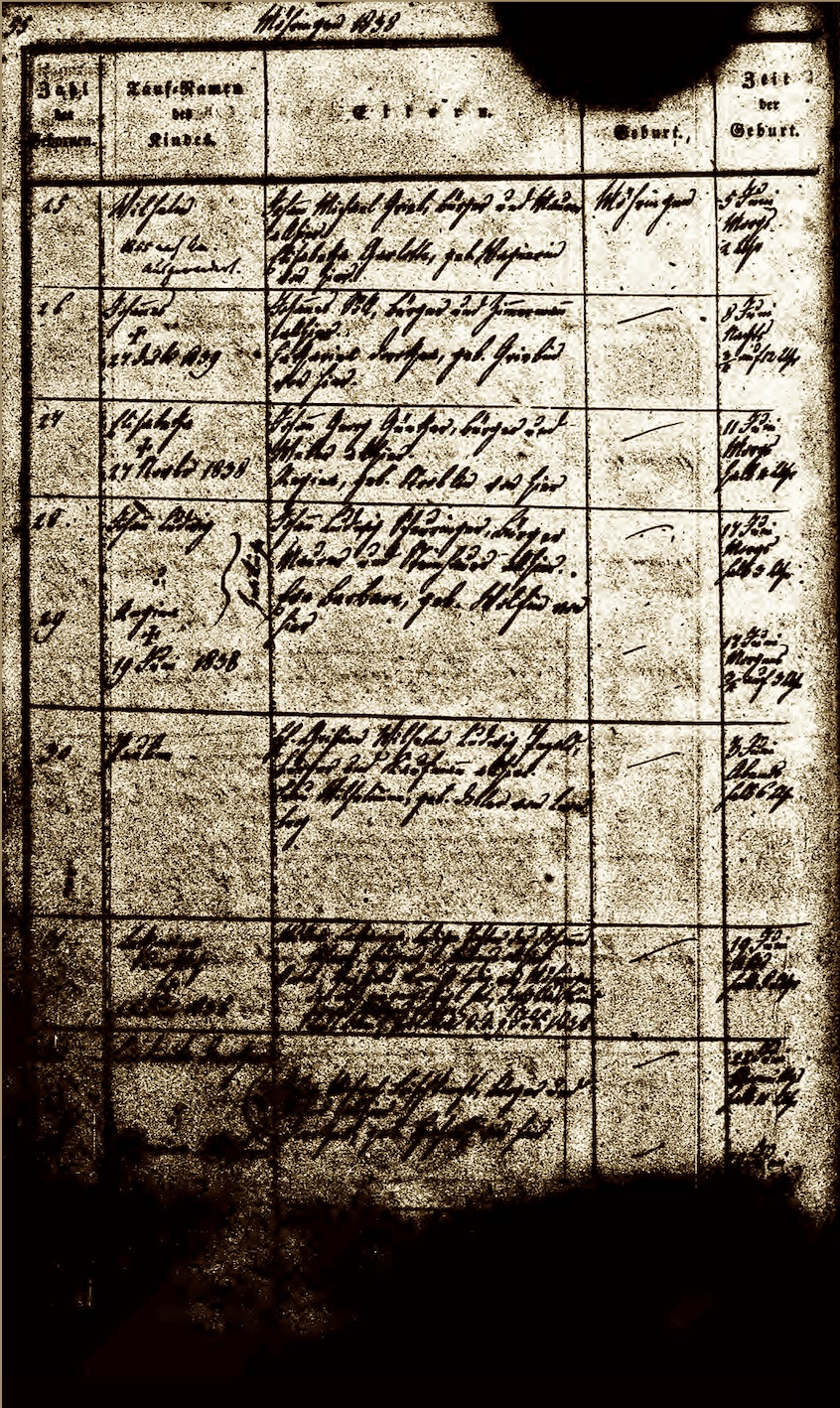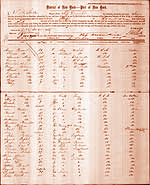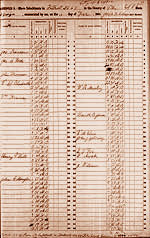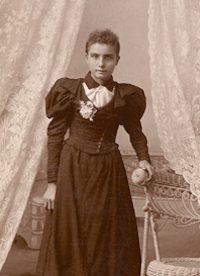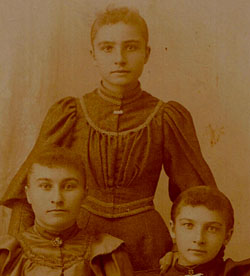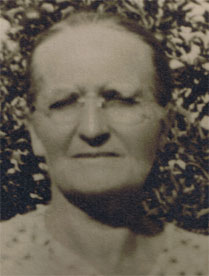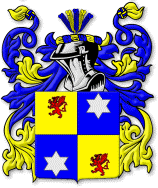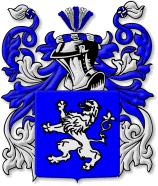 |
| Griebe |
|
The name "Grieb" is possibly a variant spelling of the Swiss German family name Griebe, an occupational name for a butcher or fat dealer, taken from the Middle High German term griube, meaning ‘rendered bacon pieces’, or ‘crackling’ (the crunchy rind left over after rendering pork or chicken fat), or less enticingly, "unsightly, emaciated man."
In the 15th century, the Griebe family was entrusted in the Palatinate with a coat of arms procurement, and also granted a civil Family Crest. The Coat of Arms shown here features a blue shield with a silver lion rampant.
The Grieb family in our line can be traced all the way back to JOHANN GEORG GRIEBEN and his wife, CHRISTINA MARGARETHA WOLFIN, about whom we know nothing other than the names on their wedding documents at an Evangelische Kirche (Evangelical church) in Liedolsheim, a village situated between Speyer and Karlsruhe, about a mile east of the upper Rhine River in Herzogtum Würtemberg, a state in the Holy Roman Empire. The territories of Herzogtum Würtemberg were essentially grouped around the center of today's state of Baden-Würtemberg. Except for the Rhine plain, it's a mostly mountainous region that includes the Swabian Jura and the Black Forest.
Originally, Würtemberg was a county, but it was promoted to a duchy in the Holy Roman Empire, starting in 1495. The duchy suffered terrible devastation during the Thirty Years' War and was invaded by French troops several times during the Cabinet Wars of the 17th and 18th centuries. So basically, a peasant in Würtemberg like the Griebs would wake up every morning wondering who the ruler would be that day.¹
CHILDREN OF GEORG GRIEB AND CHRISTINA MARGARETHA WOLF |
|
JOHANN MICHAEL GRIEB, was born in 1783 and baptized on 6 Aug 1783 in Möhringen, Herzogtum Würtemberg, to CHRISTINA MARGARETHA WOLFIN and JOHANN GEORG GRIEB (SOURCE: Evangelisches Landeskirchenamt, Stuttgart, Deutschland; click on the image at right). He married BARBARA MERZIN ("Merz" in family histories) on 2 Feb 1802 in Möhringen.
|
| Personal Information |
Wedding Record |
| Name: | | Johann Michael Grieb |
| Gender: | | männlich (male) |
| Event: | | Heirat (Marriage) |
| Date: | | 2 Feb 1802 |
| Place: | | Möhringen, Würtemberg |
| Father: | | Johann Georg Grieben |
| Spouse: | | Barbara |
|
|
|
|
SOURCE: Evangelisches Landeskirchenamt, Stuttgart, Deutschland.
|
|
The next time we see the Grieb family, they are baptizing their son about a hundred miles away in Evangelische Kirche Möhringen, also in Würtemberg. Their son, Johann Michael Grieb, became a coach maker (I guess dealing in fat was no longer a popular occupation in the Grieb family) and he married BARBARA MERZIN ("Merz" in family histories) on 2 Feb 1802 in the village of Möhringen when it was still in the Duchy of Würtemberg, pre-Napoleon. The village of Möhringen is now an urban district in the south of Stuttgart, but it has a long history: A thousand years ago, it was ruled by the Counts of Tübingen, but they sold the village in the 13th century to the Hospital of Esslingen, and it remained under Esslingen ownership until the end of the Old Empire, in the early 1800s when it became part of Würtemberg.
.gif) |
|
Merz
|
|
Merz is a German surname that originated as a nickname for someone who was considered to be a "merry" or cheerful person. The family name has spelling variations across the area where they lived. In Germany, it is commonly spelled as Merz, while in Switzerland, it is often written as Mertz. In France, the name is transformed into Merce, and you can bet her family practiced those variations dutifully every time France invaded, but pheavals triggered by the French Revolution led to Würtemberg being elevated to the status of an electorate in the Holy Roman Empire in 1803.
This new-found power in the Europe after years of invasions and wars must have had an impact on Michael and Barbara, because about this time, they started a family:
CHILDREN OF JOHANN MICHAEL GRIEB AND BARBARA MERZEN |
|
CHRISTINA MAGDALENA GRIEB was born on 29 Nov 1802 in Möhringen, Stuttgart, Würtemberg. She was baptized on November 27, 1802 in Möhringen, Oa u. Stuttgart, Würtemberg, to Michael Grieb and Barbara Merzin (SOURCE: Evangelisches Landeskirchenamt, Stuttgart, Deutschland; click on the image at right).
|
|
MICHAEL GRIEB, JR., born on 22 Oct 1806 in Möhringen. He married CHARLOTTE (ELIZABETH MASTELLA) WAGNER on 8 Sep 1833 in Möhringen, Oa u. Stuttgart, Würtemberg. They had nine children, listed below. He died on 23 Jan 1861 in the village of Möhringen in the Duchy of Würtemberg (SOURCE: Evangelisches Landeskirchenamt, Stuttgart, Deutschland; click on the image at right).
|
In 1806 Würtemberg became a Kingdom (Königreich) by joining "Der Rheinbund," or the Rhenish Federal States in the Confederation of the Rhine, which was formed in Paris on the initiative of the French Emperor Napoleon. With this action, Würtemberg withdrew from the Holy Roman Empire and aligned itself with the hegemonic interests of France. This meant that it supplied wealth and soldiers to Napoleon in exchange for not getting destroyed.
Internal developments in Würtemberg were shaped by reforms and changes in response to the French Revolution and the coercion of Napoleon. The central challenge for Würtemberg was the integration of the numerous predominantly Catholic territories that it gained as an ally of France. Up until this time, Frederick of Würtemberg had determined the course of the country as an absolute monarch. Despite his autocratic tendencies, he transformed an old-class state into an early liberal constitutional state within nineteen years of rule and emancipation of the peasants began after 1817. Through mediatization and secularization, very different political, legal and confessional traditions entered into Würtemberg politics. The judicial system was reformed and a three-tiered hierarchy was introduced.
But even if the Confederation of the Rhine system can be described primarily as a system of exploitation and oppression, the reforms of the states released impulses for modernization that lasted long after the Confederation had ceased to exist in 1813, with France's defeat in the Völkerschlacht ("Battle of the Nations") at Leipzig bringing an end to The Napoleonic Wars. Würtemberg became a member of the German Confederation in 1815 by resolution of the Congress of Vienna, and as such also became an externally sovereign state. The motto of the new Kingdom and the House of Würtemberg was "Fearless and loyal." On the basis of the constitution of 1819, an early constitutional monarchy developed over the years with relatively strong liberal and democratic currents.
During these hopeful years, the next in our line, MICHAEL GRIEB II, started a family of his own. On the eighth of September in 1833, Michael Jr. married CHARLOTTE (ELIZABETH MASTELLA) WAGNER in Möhringen, during a period of peace, and they started a family. Michael and Elisabetha's children were:
CHILDREN OF MICHAEL GRIEB, JR., AND CHARLOTTE WAGNER |
| JAKOB GRIEB I was born on 07 Aug 1834 in Möhringen, Stuttgart, Wuerttemberg. He died on 28 Aug 1834, in Möhringen, Stuttgart, Würtemberg. |
|
JOHANN "JOHN" MICHAEL GRIEB was born on 14 Jul 1835 in Möhringen. In Apr 1855, he applied to emigrate to North America (Würtemberg Emigration Index, Stuttgart, #849612). Once in the United States, he married Anna Nunemaker (b. 1846) and had the following children: Charles F. (b. 1867); Elizabeth (b. 1869); Albert (b. 1872), Henry W. (b. 1875); George E. Grieb (b. 1879) and John Jr. John Sr. died on 2 Dec 1910 in Elkhart, Indiana. See his family here. (Photos courtesy of William Keedy.)
|
| JAKOB "JACOB" GRIEB II was born on 15 Jan 1837 in Möhringen. After his father died in 1860, he applied to leave Möhringen for North America with brother Carl Friedrich, according to the Würtemberg Emigration Index (Stuttgart, Mar 1861, #849614) to reunite with his brother, Wilhelm, but his dreams of a better life in a new land were cut short when he died on 30 Aug 1861 in Freedom Township, Washtenaw Co., Michigan. |
|
WILHELM (WILLIAM) GRIEB was born on 05 Jun 1838 in Möhringen, Stuttgart, Würtemberg. He married SALOMA MAMMEL on 14 Mar 1872 in Washtenaw County Michigan. They had 12 children, listed below. See the whole family here. William died on 18 Nov 1901, in Lima Township, Washtenaw County, Chelsea, Michigan, from peritonitis caused by appendicitis. He is buried at Rogers Corners. See his headstone here.
|
| DAVID GRIEB was born on 11 Feb 1840 in Möhringen, Stuttgart, Würtemberg. He died the next day, on 12 Feb 1840, in Möhringen. |
| JOHANNES GRIEB was born on 30 Apr 1841 in Möhringen, Stuttgart, Würtemberg. He died on 09 May 1841 in Möhringen. |
| ROSINA ELIZABETHA GRIEB was born on 16 May 1843 in Möhringen, Stuttgart, Würtemberg. She died on 23 May 1845 in Möhringen. |
| CARL FREDRICH "CHARLES" GRIEB was born on 04 Oct 1844 in Möhringen, Stuttgart, Würtemberg. He applied to emigrate to North America with brother Jakob (Stuttgart, Mar 1861, #849614) and settled in Freedom, Washtenaw County, MI. On 8 Jun 1862 he enlisted in the Union Army in Sharon, Michigan, and became a private in Company B, Michigan 20th Infantry Regiment on 16 Aug 1862. He was mustered out on 30 May 1865 at Delaney House, Washington, DC. After the war, he married CLARINTHA AMELIA "CLARA" BOWLES of Chelsea, Michigan, on 15 Feb 1872. They had four children: John Edward Lacey, Charles F., Alice Elizabeth, and William. In the 1880 census, they lived in Sylvan, Washtenaw, Michigan, then moved to Ingham County. Carl died on 24 Aug 1930 in Webberville, Ingham Co., Michigan. |
| JOHANN GOTTLOB GRIEB was born on 06 Oct 1847 in Möhringen, Stuttgart, Würtemberg. He died on 9 Oct 1847 in Möhringen. |
| Personal Information |
Taufe Baptism Record |
| Name: |
|
Wilhelm Grieb |
| Birth Date: |
|
5 Jun 1838 |
| Baptism Date: |
|
6 Jun 1838 |
| Baptism Place: |
|
Stuttgart, Würtemberg |
| Father: |
|
Johann Michael Grieb |
| Mother: |
|
Elisabetha Charlotte Grieb |
| Publicaation City / District: |
|
Möhringen, Oa u Stuttgart |
|
|
|
|
SOURCE: Evangelische Kirche Möhringen (OA. Stuttgart) Lutherische Kirchenbücher, 1500-1985. Ancestry.com. Württemberg, Germany, Lutheran Baptisms, Marriages, and Burials, 1500-1985 [database on-line]. Provo, UT, USA: Ancestry.com Operations, Inc., 2016. Page number 55;56.
|
|
But by 1848 there was a revolution starting in the German states. No violence took place in the duchy but King William had to dismiss his ministers due to pressure from the revolutionary movement, and call to power men with more liberal ideas, proponents of united Germany. William proclaimed a democratic constitution, but as soon as the movement had spent its force he dismissed the liberal ministers, and in October 1849 brought his former ministers back into power. By interfering with popular electoral rights, the king and his ministers succeeded in assembling a servile diet in 1851 that surrendered the privileges gained since 1848. Michael's family lost many of the freedoms they had gained in the previous three years, and began plotting a way out of their darkening situation.
We have scattered information on the Grieb family from various documents and historical books. Records in Germany at Möhringen Lutheran Church show Johann Michael emigrated to America in 1853, Wilhelm in 1855 and Elizabeth with sons Jakob and Carl Friedrich in 1861.
A Michael Greib, age 35, is listed as sailing to America from Le Havre, France, on the ship James L. Bogert, arriving in New York on July 26, 1852 (Apr 1855, Destination: N.-Amer Number: 849612).
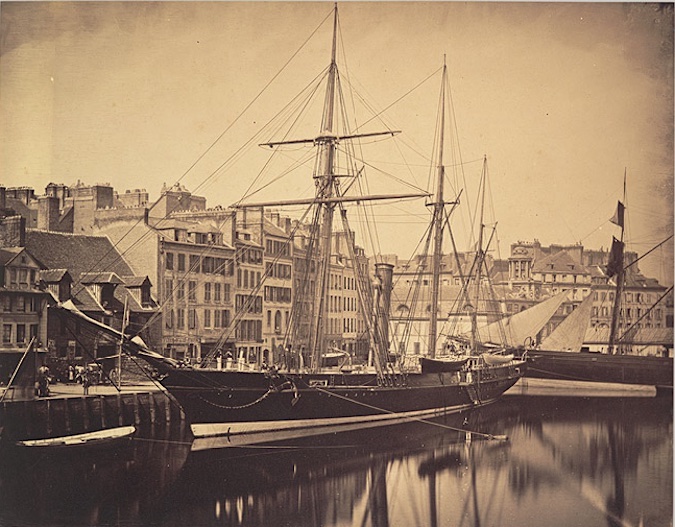
The Port of Le Havre about the time that Wilhelm Grieb sailed to America (Gustave Le Gray photo). |
| Personal Information |
Passenger List |
| Name: | | Wilhelm GRIEB |
| Age: | | 17 |
| Ship: | | Hevetia |
| Arrival Date: | | 1855 |
| Port of Departure: | | Würtemberg |
| Place of Origin: | | Möhringen |
| Port of Arrival: | | New York |
|
|
|
|
SOURCE: New York. Passenger Lists of Vessels Arriving at New York, New York, 1820-1897. National Archives, Washington, D.C.
|
|
Our ancestor Wilhelm (William) Grieb told a biographer that he came to America in 1855 (with brother Michael, as seen in the passenger list, at left) on the sailing ship Helvetia. The ship was built at Kennebunk Landing, Maine, in 1850, and was 971/1205 tons (old/new measurement); 169'1" x 35'4" x 17'8" (length x beam x depth of hold); It had three decks; draft 18 feet. It sailed in the Whitlock (later Union) Line of New York-Havre sailing packets. The book "Germans to America" confirms that Wilhelm, age 17, came on the ship Helvetia from Le Havre, France, arriving 20 Jun 1855 onboard a westbound passage that took about 34 days.
Wilhelm and Michael arrived in the port of New York, worked their way across the country and eventually settled in Ann Arbor, Michigan. One of Michigan's first and largest German settlements was established around Ann Arbor in western Washtenaw County at this time. German immigrants from Würtemberg, Westphalia, and other areas formed an independent, rural farming society, whose social structure was defined by the common language, heritage and functional needs created by an agricultural livelihood. These immigrants probably numbered over 1,500 families and emigrated from various portions of German-speaking Europe, and arrived between 1830 and 1900. And more Griebs were to come!
About this time their mother Charlotte came to Washtenaw and bought a farm in Freedom Township. She also brought two more sons: Karl (Charles) and Jakob. The family settled in close proximity to each other in Michigan, as Charlotte's brothers were in Ann Arbor and the surrounding area working as tailors and farmers.
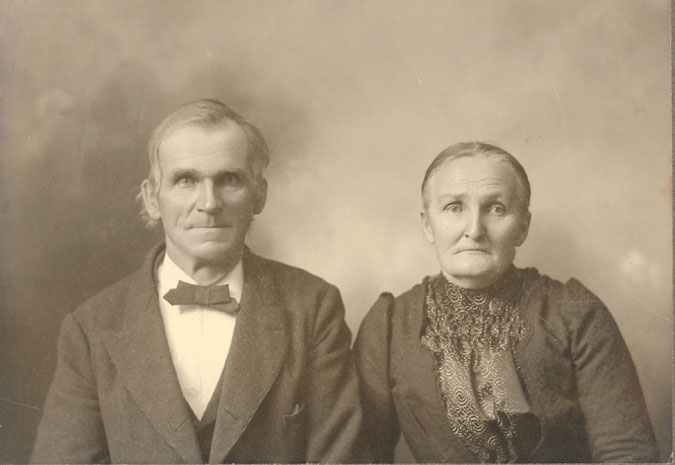
Wilhelm and Saloma Grieb, married on 14 Mar 1872 in Washtenaw County Michigan. |
On 14 Mar 1873, William married SALOMA MAMMEL, born in Freedom township in 1848. Her parents came into Scio township when she was four years old, and remained until she was 17, when they removed to Freedom township again. They have a family of 4 children—Catherine, Charles, Frank and an infant. (Later came our ancestor MARTHA GRIEB, at right.) William was a member of the Lutheran Church, and a successful farmer. His parents were members of the same denomination. His father died in 1861 and his mother Feb 6, 1880. (This was taken from "History of Washtenaw County, Michigan: and Biographies of Representative Citizens. History of Michigan", published by C.C. Chapman & Company, 1881, p. 814).
| Personal Information |
Census Image
|
| Name: |
|
William Grebe |
| Age: |
|
40 |
| Birthplace: |
|
Germany |
| Home in 1860: |
|
Lima, Washtenaw, Michigan |
| Estimated Birth Year: |
|
1840 |
| Status: |
|
Married |
| Roll: |
|
T9_608 |
| Enumeration District: |
|
230 |
| Profession, Occupation ot Trade: |
|
Farmer |
|
|
|
| Personal Information |
Census Image
|
|
| Name: |
|
William Grieb |
| Home in 1900: |
|
Lima, Washtenaw, Michigan |
| Age: |
|
61 |
| Estimated birth year: |
|
June 1838 |
| Birthplace: |
|
Germany |
| Occupation: |
|
Farmer |
| House/Farm: |
|
Farm |
| Own/Rent: |
|
Own |
| Read/Write: |
|
Yes/Yes |
| Speak English: |
|
Yes |
| Roll: |
|
T623_746 |
| Page: |
|
4A |
|
|
|
|
SOURCE INFORMATION: United States Federal Census. National Archives and Records Administration, Washington DC
|
Carl (Charles) Grieb and Catherine Mammel were attendents at Wilhelm and Salome's wedding at Zion Lutheran Church on Rogers Corners. Salome stayed true to her old-fashioned farm roots. Well into the 20th Century, Dorothy Pritchard remembers watching Salome drive past the Pritchard house in her horse and buggy to visit her son Reuben and his family. They had the following children:
CHILDREN OF WILHELM GRIEB AND SALOME MAMMEL |
|
KATHERINE EMMA GRIEB was born on 21 Mar 1873 in Lima Township, Washtenaw Co. Michigan. She married JOHANN GEORGE ZAHN (1871-1950) on 20 Apr 1899 and they had two kids: Johann Rudolph "John" (1902-1950) and Bata Martha Grieb (Eschelbach, 1904-1944). Katherine died on 18 Nov 1941 and is buried at Zion Lutheran Cemetery in Chelsea, Washtenaw Co., Michigan.
|
| KARL CHARLES "CHARLIE" GRIEB was born on 29 Mar 1874 in Lima Township, Washtenaw County, Michigan. On 12 Nov 1896 he married MARY MAGDALENA LOEFFLER (1877-1957) in Freedom Township, Washtenaw, Michigan, and they had a son, Wilburt George Grieb (1898-1993). Karl died on 15 Nov 1947 in Freedom Township, Washtenaw Co., Michigan. |
| WILHELM GRIEB was born in July of 1875. He died on 31 Aug 1875. |
| JOHANNES G. GRIEB was born in October of 1876. He died in August of 1877. |
| FRANK FREDERICK GRIEB was born on 19 Mar 1878 in Lima Township, Washtenaw Co. Michigan. He married ELIZABETH ANNA GUENTHER (1878-1961) on 11 Dec 1902 in Lodi, Washtenaw, Michigan, and had two daughters: Emma (1906-1946) and Elizabeth Edna Grieb (1908-1997). Frank died on 08 Dec 1948 in Chelsea, Washtenaw Co., Michigan. |
| LUDWIG GRIEB was born and died in 1879. |
|
MARTHA CAROLINA GRIEB was born on 08 Dec 1880 in Lima township, Washtenaw County Michigan, her father, Wilhelm, was 42 and her mother, Salome, was 32. She married a farmer named MARTIN WENK on 06 Jan 1909. They had six children during their marriage, listed below. She died from "cardiac insufficiency" and arteriosclerosis on 27 Mar 1937 in Freedom Township, Washtenaw Co., Michigan, according to her death certificate (SOURCE: Michigan Department of Community Health, Division for Vital Records and Health Statistics, Lansing, Michigan), just a few years before her namesake granddaughter, MARTHA WENK, was born.
|
| EUGENE GRIEB was born on 23 Mar 1883 in Lima Township, Washtenaw Co. Michigan. Eugene died on 24 Oct 1962. |
|
BERTHA FREDERICKA GRIEB was born on 05 Nov 1884 in Lima Township, Washtenaw Co. Michigan. She married GODFRIED ANDREAS EISELE (1882-1969) on 28 Jan 1914 and they had two sons: Osker (1915-1915) and Paul Wilhelm Eisele (1917-1987). Bertha died on 02 July 1945 in Scio Twp, and she is buried with her husband at Vermont Cemetery in Chelsea, Washtenaw County, Michigan.
|
| GUSTAV ADOLF GRIEB was born on 05 Oct 1886. He died on 29 Oct 1921. |
| REUBEN GRIEB was born on 02 May 1887. On 15 Nov 1911 he married AMANDA TRINKLE (1891-1945) in Lima, Washtenaw, Michigan, and they had two sons, Leroy (1915-1952) and Earl Reuben Grieb (1925-2012). Reuben died on 23 Dec 1969. |
| JULIUS OSCAR GRIEB was born on 24 May 1890. He died in October of 1902. |
|
Martha Carolina Grieb in her youth; posing with sisters Catherine Emma and Bertha; and later in life.
|
Their daughter MARTHA CAROLINA GRIEB (b. 08 Dec 1880 in Lima township) was a pretty, delicate child who looked mature beyond her years—and very serious. She married MARTIN WENK on 06 Jan 1909, and they had six children together a small, 10-acre farm in Freedom Township.
In 1923, Martin bought his family's 40-acre farm (with another 40 acres of marshland in the Tamarack Swamp) in Freedom Township after his mother died. He then bought another 30 acres of field between the two farms, creating a substantial 130-acre family estate.
By the time of the 1930 Federal Census, Martin (54) and Martha (49) are still in Freedom, and all the kids still live at home, working the farm: Elmer (20), Erwin (19), Rubena (18), Edna (16), Ernest (15), and Norman (12). Martin is listed as a "working farmer," as a general farmer, as do all of his sons, but the threshing business is no longer reported. Martha would die seven years later, on 27 Mar 1937 in Freedom Township, from a weak heart. But her children all lived long, happy lives:
CHILDREN OF MARTIN WENK AND MARTHA GRIEB
|
|
ELMER OSWALD WENK, b. 22 July 1909 in Lima Township, Washtenaw Co., MI. He went to Seminary at age 14 in St Louis Missouri. Because he did not have high school he also took High school there. Went by train, sent laundry home weekly. He got homesick, took the train home. Erv picked him up at station. (As narrated by Ernest Wenk, May 2001.) Elmer married Pearl Reed later in life, but they divorced on 22 Oct 1969. He died on 17 June 1976.
|
|
ERWIN MARTIN WENK, b. 13 Aug 1910 in Lima Township. He was an expert with engines and mechanical devices, but instead of choosing a career in that craft, chose to become a farmer like his father. He married DOROTHY PRITCHARD and had the following children: Martha, Irene, Donald, Chuck, Paul and Jean. Erwin died on 19 Oct 1982.
|
|
RUBENA MARITTA WENK, b. 10 Oct 1911 in Lima Township, Washtenaw Co., MI; Baptized 19 Nov 1911 at Zion Evangelical Lutheran Church in Freedom Township. She married Walter George Loeffler (23 Nov 1909 - 27 Oct 1991) and they had the following children: Arlene (b. 05 Aug 1936. Read her family history here), Norman (b. 23 Apr 1941) and Carl Loeffler (1946 - 2001). Rubena died on 2 October 1987 in Freedom, Washtenaw, Michigan.
|
|
EDNA ANNA WENK, b. 13 Apr 1913 in Freedom Township. She loved to have "get togethers" according to Dorothy Wenk. She married Carlton Paul Burkhardt (22 Aug 1912 - 28 Dec 1968) in May, 1941, and they had the following children: Ronald Martin (b. 23 May 1942), Karen (b. 28 Dec 1944) and Gary Burkhardt (28 Jun 1949 - 27 Jun 2005). Edna died on 6 December 1974 in Manchester, Washtenaw, Michigan.
|
|
ERNEST WILHELM WENK, b. 09 June 1914 in Freedom Township. He farmed the Wenk homestead where he and his father owned and operated a sawmill. He worked for Chrysler at the Chelsea Proving Grounds. He enjoyed deer hunting, trapping, and fishing. On February 7, 1942 he married Edna M. Horning, and they had three children: Kenneth Carl, William Ernest (m. Marlene) of Denver, Colorado and Carolyn Elaine (m. Patrick) McNamara of Ann Arbor, Michigan. Ernie passed away at age 91 on Thursday January 26, 2006 at the Chelsea Retirement Community.
|
|
NORMAN OSCAR WENK, b. 18 Jan 1918 in Freedom Township. He played baseball and football at Chelsea High, and married Lorena Alma Hieber (b. Nov. 1920) on 29 Aug 1942. Norman entered the U.S. Service February of 1942 and was sent overseas to defeat the Germans in January 1945, landing at La Havre, France (where the Griebs sailed out of when emigrating from Germany). He was commissioned as a 2nd Lt., coming home February 1946. Norman and Lorena had the following children: Barbara Jean, Marilyn, Anita, Daniel and Robert Wenk. Norman died on 30 Apr 2012 in Chelsea, Washtenaw County, Michigan, at the age of 94.
|
NOTES:
¹—Political unrest in Würtemberg from 1815 until 1819 had resulted in the issuance of a constitution by King William I (reigned 1816-64), establishing a bicameral legislature, making Würtemberg was a center of liberalism in 19th-century Germany. It joined the Zollverein (Customs Union) with Prussia in 1834, but King Charles (1864-91) sided with Austria in the Seven Weeks' War (1866) and was forced to pay an indemnity by the victorious Prussians. In 1918, Würtemberg became a republic called the Free People's State of Würtemberg. Under the Nazi regime a "Reichsstatthalter" (lieutenant governor) for Würtemberg was appointed in 1933, and the state's government was subordinated to that of the Reich in 1934, while the Landtag, or State Diet, was abolished. After World War II, Würtemberg was divided between the United States and French occupation zones and became part of two new states: Würtemberg-Baden and Würtemberg-Hohenzollern. After the Federal Republic of Germany was formed in 1949, these two states merged with Baden in 1952 to become the modern German state of Baden-Würtemberg.
SOURCES FOR THIS GENEALOGY
- "Germans to America: Lists of Passengers Arriving at U.S. Ports, Vol. 9: Dec. 12, 1854-Dec. 31, 1855 (Volume 9)" by Ira A. Glazier (Editor), William P. Filby (Editor), provides both genealogists and researchers of family history with the first extensive, indexed source of German-surname immigrants who came to all ports in the United States between 1850 and 1893. This period witnessed one of the highest rates of German emigration in the nineteenth century. The series reproduces information from the original ship manifest schedules, or passenger lists, filed by all vessels entering U.S. ports. All volumes are arranged in chronological order by each ship's date of arrival. For every passenger list, the following information is provided: ship name, port of departure, port of arrival, date of arrival, and list of German-surname passengers. Ships that departed from German ports or carried passengers who declared themselves to be of German origin are included, with full name, age, sex, occupation, and, when this information is given, country, province or village of origin provided for each emigrant. One of the most important features of this series is the complete index of names at the end of every volume, making it easy to find a particular individual or family name. (1 Dec 1989)
- History of Washtenaw County, Michigan : together with sketches of its cities, villages and townships...and biographies of representative citizens : history of Michigan Publisher: Chicago :: Chas. C. Chapman & Co., 1881. In the digital collection Making of Ann Arbor Text Collection. https://name.umdl.umich.edu/BAC4701.0001.001. University of Michigan Library Digital Collections. "William Grieb, farmer, Lima tp., was born in Wurtemburg, Germany, Jan. 5, 1838. He is the son of Michael and Elizabeth Grieb. He came to America with his father and brother in 1855, and settled in Ann Arbor, where his brother, John Michael, worked for about six years. About this time his mother came to this county, and bought a farm in Freedom tp. March 14, 1873, he married Saloma Marmmel, born Yn Freedom tp., in 1848. Her parents came into Scio tp. when she was four years old, and remained until she was 17, when they removed to Freedom tp). again. They have a family of 4 children-Catharine, Charles, Frank and an infant. Mr. Grieb is a member of the Lutheran Church, and a successful farmer. His parents were members of the same denomination. His father died in 1861, and his mother Feb. 6, 1880." (p. 815)
- http://www.auswanderer-bw.de/auswanderer is a German-language website that provides information and resources related to emigration (Auswanderung in German) from the German state of Baden-Württemberg. The website is maintained by the Landesarchiv Baden-Württemberg (State Archive of Baden-Württemberg) and contains information about historical emigration from Baden-Württemberg, as well as resources for genealogical research related to emigrants.
- "A Brief Description of a Typical Southern German Village in the Past Centuries," by Dieter Joos Ueberlingen, Germany (djoos@dieter-joos.de). April, 2006.
- "Germany and the Americas: Culture, Politics, and History: a multidisciplinary encyclopedia, Volume 3" by Thomas Adam. ABC-CLIO, 2005.
- Washtenaw County Historical Society, aka, The Museum on Main Street: 500 N. Main Street, Ann Arbor, MI 48104; 734-662-9092; wchs-500@ameritech.net
- Past and present of Washtenaw County, Michigan / by Samuel W. Beakes, together with biographical sketches of many of its prominent and leading citizens and illustrious dead, by Samuel Willard Beakes. Publication: Chicago :: The S.J. Clarke publishing co., 1906. In the digital collection Michigan County Histories and Atlases. https://name.umdl.umich.edu/BAD1054.0001.001. University of Michigan Library Digital Collections.
- Combination atlas map of Washtenaw County, Michigan / compiled, drawn and published from personal examinations and surveys, by Everts & Stewart. Publication: Chicago, Ill. :: Everts & Stewart, 1874. In the digital collection Michigan County Histories and Atlases. https://name.umdl.umich.edu/3928074.0001.001. University of Michigan Library Digital Collections.
- German Heritage Guidebook: Driving Tour of 19th and 20th Century Settlement and Farms; Washtenaw County, Michigan.
- "A History of the German settlers in Washtenaw County" by Dale R. Herter and Terry Stollsteimer, 2007.
- "Michiganology: German POW Camps in Michigan" by Steve Ostrander, Exhibit Developer, Michigan History Center.
|
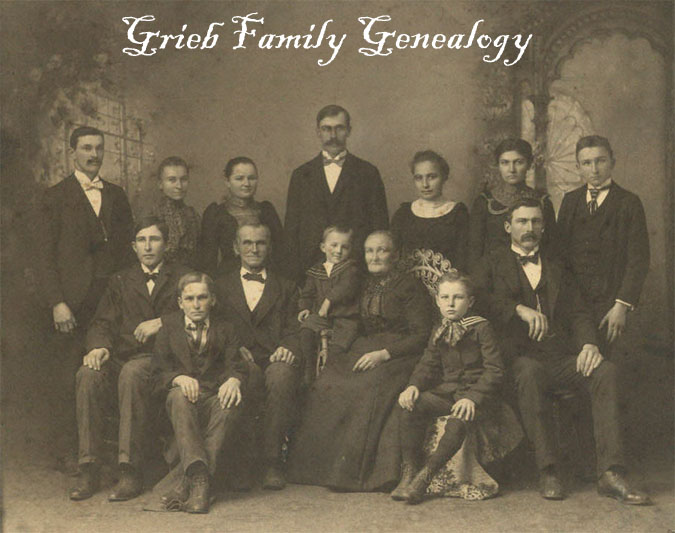


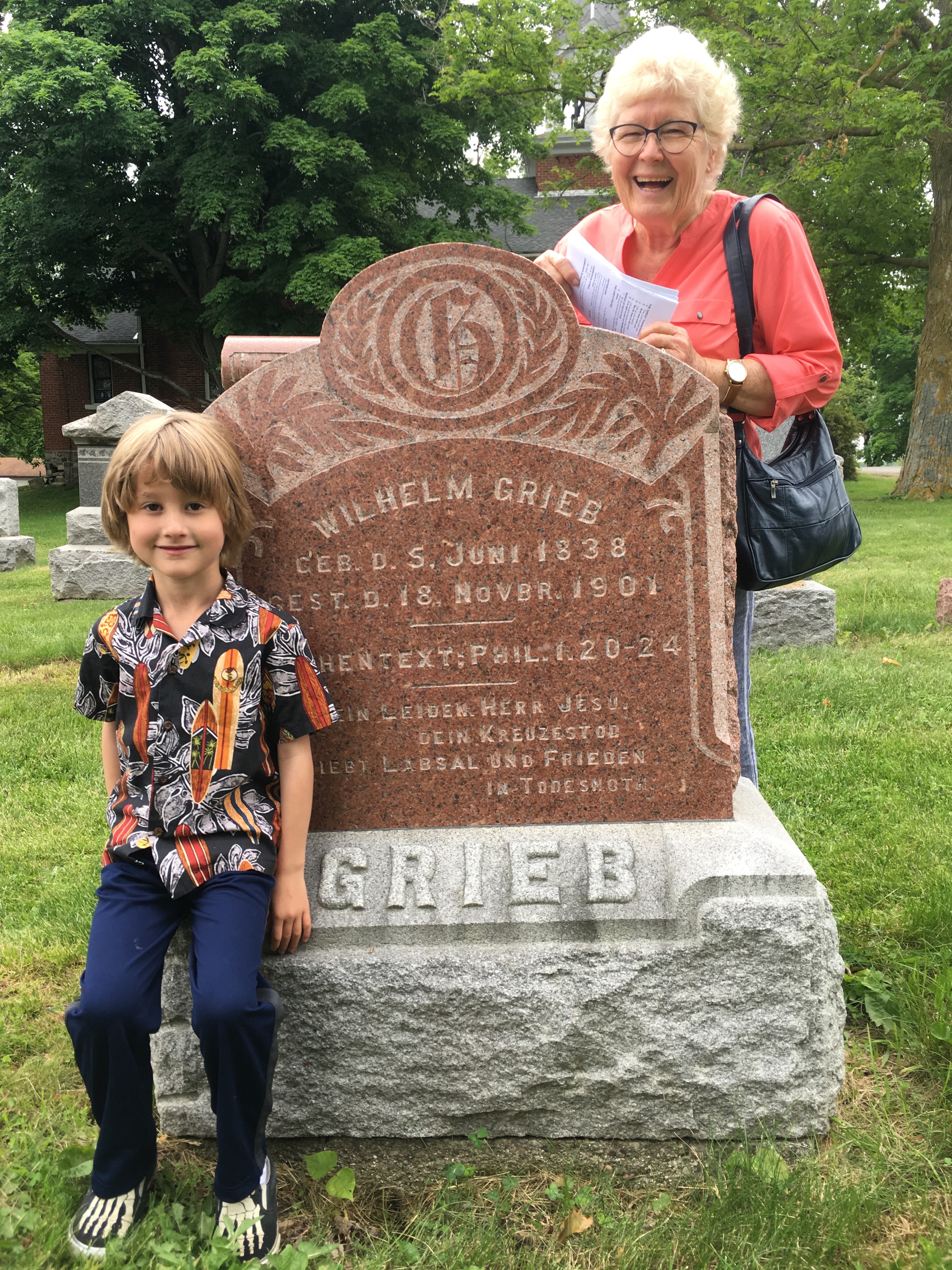


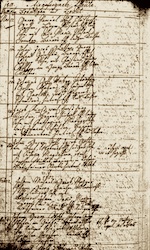
.gif)

.gif)


